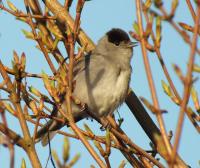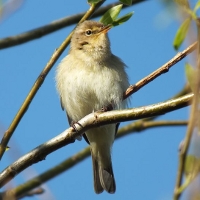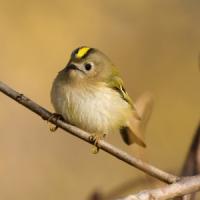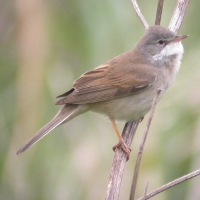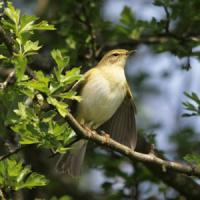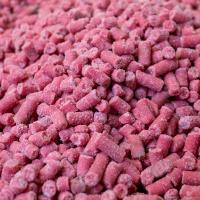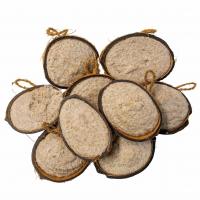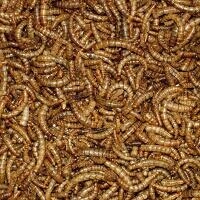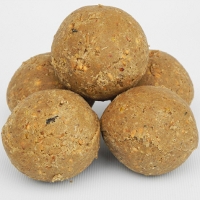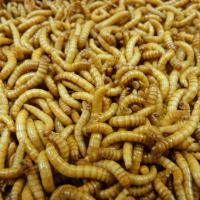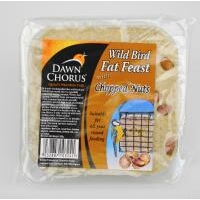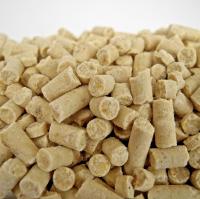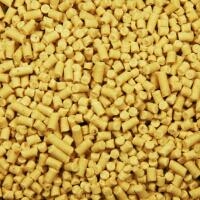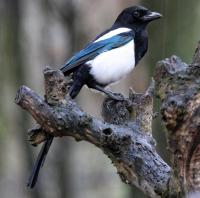- Home
- FAQs
- Customer Video Gallery
- Customer Photo Gallery
- Bird Facts
- Bird Food Blog
- Bird Information
- Feeding Advice
- Small Animal Information
- A to Z of Guinea Pigs
- A to Z of Hamsters
- A to Z of Rabbits
- Basic Care for Guinea Pigs
- Basic Care for Hamsters
- Basic Care for Rabbits
- Basic care for Chinchillas
- Basic care for Ferrets
- Basic care for Gerbils
- Basic care for Mice
- Basic care for Rats
- Buying a Healthy Small Animal
- Does your Reptile need a Licence
- Equipment for Ferrets
- Equipment for Hamsters
- Equipment for Mice
- Equipment for your Chinchilla
- Equipment for your Gerbil
- Equipment for your Guinea Pig
- Equipment for your Rabbit
- Keeping a House Rabbit
- Dog Information
- Cat Information
- Customer Information
- Fat Balls
- Suet Pellets
- Straights
- Seed Mixes
- Suet Treats
- Mealworms
- Bird Feeders
- My Account
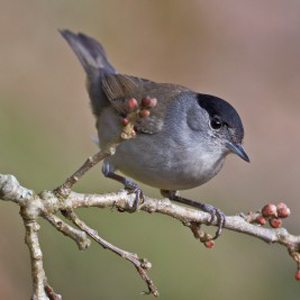
| Scientific Name | Sylvia atricapilla |
| Breeding | mid-April |
| Fledge Days | 11-12 |
| Incubation Days | 13-14 |
| Lifespan | 2 years |
| Number of Clutches | 1-2 |
| Number of Eggs | 4-6 |
| Size | 13 - 15cm |
| Weight | 14 - 20g |
| Wingspan | 22cm |
Bird Family : Warblers and Allies
Blackcap Facts - Information About Blackcap
Blackcap - Sylvia Atricapilla
The Blackcap is a common summer visitor. It is a member of the Warbler Family that spends its winter in Spain and Africa, arriving here in April and departing in October. It is unusual in the Warbler world as it is happy to eat fruit as well as insects. This enables a small proportion to spend the winter in Britain when insects are hard to find.
Identification:
Adults
- Blackcaps are reasonably large and stocky for a Warbler , measuring in at 14cm.
- The plumage of males and females differ only in the colour of the cap, black in males and red/brown in the females.
- The whole of the upper parts, including tail of both sexes are grey with slightly brown wings.
- The underparts are a dull olive grey.
- The undertail/vent of both sexes is white.
- Males have a very neat black ‘skullcap’ which finishes above the eye, a plain grey face with a dark eye and fine white eye-ring, a pale throat and a two tone grey and black bill.
- Female’s heads differ only in colour of the cap, a red/brown.
- Bill is grey/black.
- Legs are dark grey/brown.
- Eye is black with a white eye-ring.
Confusable Species
- Willow Tit and Marsh Tit are similar in plumage but show obvious white cheeks and black bibs, the cap also encompasses the eye.
- Both are a lot smaller than Blackcap with different calls and actions.
Juveniles
- Juveniles appear from mid-May onwards and during the first year look similar to adult females.
- Young birds have the same bodily plumage of the adults and sport a red/brown cap similar to that of the female.
- Young males black head feathering will moult in by autumn.
- Bill and legs are grey, eyes are black.
Status and Distribution
The Blackcap is an abundant breeding summer migrant arriving in the UK in late March-April, breeding takes place in May. We have about a million breeding pairs. The Blackcap occurs in all counties throughout the UK, however, like most summer migrants it is less numerous in the far north of Scotland.
Unusually for a migrant Warbler , the Blackcap also winters in Britain; it is unsure if the wintering population are our breeders or birds from the near continent. The wintering population stands at around 4,000 birds.
Habitat / Food
Blackcaps occur in all habitat types throughout the UK, woodlands, parks, gardens, farmland, hedgerows indeed any open country habitat with suitable scrub.
Blackcaps are real survivors and their diet allows them to winter here in the UK. Stocking the winter bird table with suet, fat balls, mealworms and fruit may well entice one to winter in your garden. During summer they feed on insects and fruit.
Song / Call
Call note is a loud single clicking ‘check’, sometimes repeated 3 or 4 times when agitated. Song is very sweet, fluty and melodic with clicks and raspy notes thrown in. Will also mimic other species.
Song delivered from prominent perch or from the shady understory.
The following food is favoured by Blackcap




